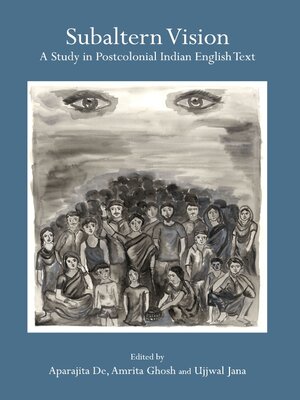
Sign up to save your library
With an OverDrive account, you can save your favorite libraries for at-a-glance information about availability. Find out more about OverDrive accounts.
Find this title in Libby, the library reading app by OverDrive.



Search for a digital library with this title
Title found at these libraries:
| Loading... |
"Ever since the Gramscian notion of the subaltern became the lynch-pin of the counter-hegemonic project developed by the Subaltern Studies group in the early 1980s, attempts to give voice to India's unrepresented or under-represented classes have played a crucial role in commentary on the nation's history and cultures. The subaltern project has explored possibilities for recuperating and articulating occluded discourses, interrogated the approaches of elite historiography and proposed alternative epistemologies. In the early twenty-first century, subaltern concerns have been prominent in cultural debates around the globe and they remain equally central to analyses of the gap between elite and marginalized classes within India itself.The present volume offers a stimulating collection of essays primarily devoted to literary representations of subaltern issues by Indian novelists writing in English and with a particular focus on gender, nation and language. It brings together essays on two writers who have been frequently associated with subaltern concerns, Amitav Ghosh and Mahasweta Devi, and discussions of other internationally acclaimed writers, such as Kiran Desai, Rohinton Mistry and Khushwant Singh, whose work also deals with disparities in Indian society and the problematics of representing this. Subaltern Vision has a valuable contextualizing Preface by Debjani Ganguly. The editor, Aparajita De's Introduction, both illuminates the evolution to subaltern studies and introduces the individual essays. The volume is a significant intervention in the field and it is essential reading for anyone interested in the ways in which literature has responded to the challenges posed by the widening gap between India's haves and have nots."– John Thieme, Professor, University of East Anglia






